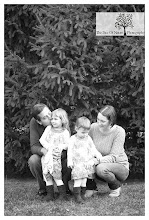David Grossman's Smile of the Lamb is a difficult book to get into, but once you internalize its rhythms, it becomes difficult to put it down. Because of its difficulty level and subject matter, Smile of the Lamb would only be appropriate for upper-level honors courses or post-secondary classes. Each chapter is a stream-of-consciousness glimpse into the mind of one of four main characters: Uri, his wife Sosh, his friend Katzman, and the outcast storyteller Khilmi. The first three are nonpracticing Israeli Jews, but Khilmi is an Arab storyteller. Uri and Katzman are soldiers helping with the Israeli occupation of Khilmi's Palestine.
As the story unfolds, it becomes obvious that the connection between the four runs deeper than the conflict that brings them all together. This is a book about the fluidity of reality, a treatise on the foggy boundary between fact, fiction, and lies. As Arabic phrase kan-ya-ma-kan, meaning "once upon a time," is repeated time and time again, the reader learns that there is not one reliable narrator among them.
It would take a lot of work to teach this book, but it would be worth it. The cloudiness of truth in The Smile of the Lamb reminds me of O'Brien's The Things They Carried and I think it would be interesting to compare these two books as each is also about a war.
Other themes include infidelity (Katzman and Shosh have an affair), the meaning of love, and the Israeli/Palestinian conflict (Grossman's characters on both sides of the conflict find the Israeli occupation of Palestine to be an injustice). Students would need to have an understanding of the history of the conflict in order to fully understand the references to the wars. They would also need to have a basic Arabic translation guide (I found Google Translator to work well for the circumstances), as the Arabic phrases are sometimes left untranslated. If I were to teach this book, I would heavily scaffold the first four to eight chapters, as the narrators rotate and very few clues are given as to which character is speaking. I would also have students keep a running list of the "truths" of the novel, the subplots and storylines, so that they could see how they weave together and blur into and out of reality.
The Smile of the Lamb does not have the most satisfactory ending, but that is part of its charm. This is a book that I will continue to think about over the next days or weeks, and I'm sure that students who are properly prepared and scaffolded will also have this reaction.
Friday, May 28, 2010
Sunday, May 23, 2010
Seven Blessings by Ruchama King
Seven Blessings is the story of matchmakers and their clients in modern-day Jerusalem. It is alternately a "fluffy" book - one critic calls King a "Jewish Jane Austen" - and a deep book filled with religious discussions. Students would need a background in Israeli history, Judaism and Jewish culture, as well as a Hebrew vocabulary lesson to fully understand the text. While the Israeli/Palestinian conflict is only mentioned in passing, the sections where King brings it into the story merit discussion. For example, one of the characters says that their "neighbors want to exterminate" them, or when characters are stopped at checkpoints and searched for bombs. Seven Blessings lends itself to a comparison with Pride and Prejudice - students and teachers could discuss the cultural similarities and differences in the two settings, as well as with dating and marriage in our own culture. At the same time, the heavy reliance on religion throughout the book may be too much for some school environments.
Wednesday, May 19, 2010
A Woman in Jerusalem & The Book of Intimate Grammar
A Woman in Jerusalem would be a great book to use in the high school classroom. It is the tale of one man's attempt to find the identity of a woman killed in a terroist bombing in Jerusalem and then his quest to return her body to her homeland. While the main characters are Jewish, the Israeli/Palestinian conflict is not given much weight. When mentioned, it is referred to as "someone else's war." Great topics for class discussion include the lack of character names (the only character named in the book is the dead woman), the sensationalism of the press, the varying concepts of what it means to be human(e) and inhuman(e), and the drive of moral duty. While the book is told mainly from the resource manager's perspective, this is interrupted by short segements in which the plot is unfolded using onlookers (cleaning ladies, villagers, and soldiers, for example). A Woman in Jerusalem is accessible and needs very little background information, although students would benefit from an understanding of the conflict in Israel and some background on the Cold War.
The Book of Intimate Grammar by David Grossman is not school-appropriate due to sexual references including bestiality.
The Book of Intimate Grammar by David Grossman is not school-appropriate due to sexual references including bestiality.
Subscribe to:
Posts (Atom)
